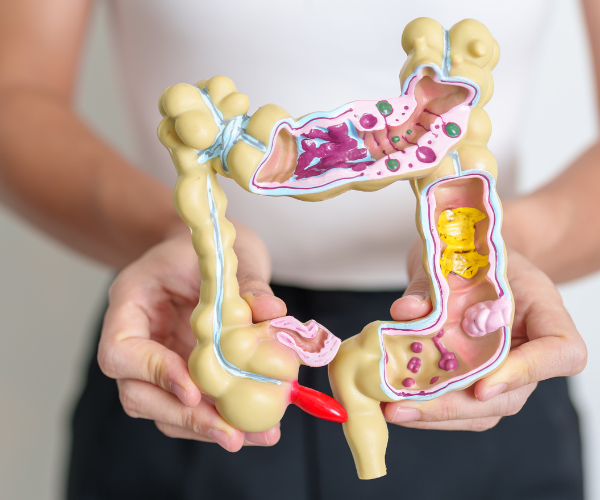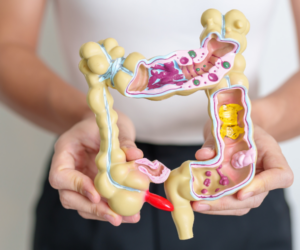Constant stomach pain for days: Causes and treatment
Learn about the common causes, potential treatments, and when it’s time to seek medical care for constant stomach pain.
Constant stomach pain for days: Causes and treatment
Learn about the common causes, potential treatments, and when it’s time to seek medical care for constant stomach pain.

Are you experiencing constant stomach pain for days? This persistent pain can vary in intensity and may be a sign of an underlying health issue. If you’re dealing with ongoing abdominal discomfort, it’s essential to understand the root cause to determine the best course of action for relief.
Stomach pain that lingers over several days can significantly disrupt your day-to-day activities. It may cause a loss of appetite, interfere with your ability to sleep, and drain your energy. As the pain persists, it can also contribute to stress and emotional discomfort, further exacerbating the problem.
Constant stomach pain for days should never be ignored, as it could be a symptom of a more serious condition. While some causes are benign, others may require immediate medical attention. Understanding the potential causes and treatment options can help you manage the discomfort effectively and seek timely medical care when necessary.
Are you experiencing constant stomach pain for days? This persistent pain can vary in intensity and may be a sign of an underlying health issue. If you’re dealing with ongoing abdominal discomfort, it’s essential to understand the root cause to determine the best course of action for relief.
Stomach pain that lingers over several days can significantly disrupt your day-to-day activities. It may cause a loss of appetite, interfere with your ability to sleep, and drain your energy. As the pain persists, it can also contribute to stress and emotional discomfort, further exacerbating the problem.
Constant stomach pain for days should never be ignored, as it could be a symptom of a more serious condition. While some causes are benign, others may require immediate medical attention. Understanding the potential causes and treatment options can help you manage the discomfort effectively and seek timely medical care when necessary.

Understanding constant stomach pain for days
Types of abdominal pain
Stomach pain can vary greatly in its presentation. It may feel like cramping, stabbing, aching, or bloating, and it can be localised to a particular area or affect the entire abdomen. Understanding the type of pain you’re experiencing can help identify its cause.
Acute vs chronic pain
While acute pain comes on suddenly and typically lasts for a short period, chronic pain is ongoing or recurring. Chronic stomach pain can last for weeks or months, requiring more in-depth investigation into its causes as it may indicate an underlying issue.
How pain signals health issues
Persistent discomfort is often a symptom of a deeper issue. It may indicate digestive disorders, infections, or even stress-related conditions. Recognising these patterns and monitoring your symptoms can help your healthcare provider pinpoint the root cause.
Tracking symptoms over time
Tracking your stomach pain and any accompanying symptoms is important. Make note of when the pain occurs, its intensity, and any triggers that worsen or alleviate the discomfort. This information can be helpful when discussing your symptoms with a doctor.

Understanding constant stomach pain for days
Types of abdominal pain
Stomach pain can vary greatly in its presentation. It may feel like cramping, stabbing, aching, or bloating, and it can be localised to a particular area or affect the entire abdomen. Understanding the type of pain you’re experiencing can help identify its cause.
Acute vs chronic pain
While acute pain comes on suddenly and typically lasts for a short period, chronic pain is ongoing or recurring. Chronic stomach pain can last for weeks or months, requiring more in-depth investigation into its causes as it may indicate an underlying issue.
How pain signals health issues
Persistent discomfort is often a symptom of a deeper issue. It may indicate digestive disorders, infections, or even stress-related conditions. Recognising these patterns and monitoring your symptoms can help your healthcare provider pinpoint the root cause.
Tracking symptoms over time
Tracking your stomach pain and any accompanying symptoms is important. Make note of when the pain occurs, its intensity, and any triggers that worsen or alleviate the discomfort. This information can be helpful when discussing your symptoms with a doctor.


Common causes of constant stomach pain for days
Digestive disorders
Conditions like Irritable Bowel Syndrome (IBS), constipation, and food intolerances are common culprits behind ongoing stomach pain. These gastrointestinal disorders can cause discomfort ranging from mild to severe.
Inflammatory conditions
Inflammatory issues such as gastritis or Crohn’s disease can cause persistent abdominal pain. These conditions often involve inflammation or irritation of the digestive tract, leading to discomfort that doesn’t go away.
Infections and viruses
Stomach infections, including those caused by stomach flu or bacteria such as H. pylori, can result in constant stomach pain. In some cases, appendicitis or urinary tract infections may also present with similar symptoms.
Stress and mental health
Chronic stress or anxiety can disrupt normal digestion, leading to ongoing stomach pain. The connection between the brain and digestive system is strong, and emotional distress can manifest physically as abdominal discomfort.
Common causes of constant stomach pain for days
Digestive disorders
Conditions like Irritable Bowel Syndrome (IBS), constipation, and food intolerances are common culprits behind ongoing stomach pain. These gastrointestinal disorders can cause discomfort ranging from mild to severe.
Inflammatory conditions
Inflammatory issues such as gastritis or Crohn’s disease can cause persistent abdominal pain. These conditions often involve inflammation or irritation of the digestive tract, leading to discomfort that doesn’t go away.
Infections and viruses
Stomach infections, including those caused by stomach flu or bacteria such as H. pylori, can result in constant stomach pain. In some cases, appendicitis or urinary tract infections may also present with similar symptoms.
Stress and mental health
Chronic stress or anxiety can disrupt normal digestion, leading to ongoing stomach pain. The connection between the brain and digestive system is strong, and emotional distress can manifest physically as abdominal discomfort.

When to be concerned
Pain that doesn’t go away
If your stomach pain lasts for more than a few days or recurs frequently, it’s a sign that something more serious may be happening. Don’t dismiss constant pain as normal, especially if it continues without improvement.
Red flag symptoms
Certain symptoms should never be ignored. If you experience blood in your stool, vomiting blood, a high fever, or severe pain, seek medical attention. These could be signs of more serious conditions such as an infection.
Other warning signs
Unexplained weight loss, extreme fatigue, or changes in your bowel habits can also indicate underlying health issues. If these symptoms accompany your stomach pain, it’s important to consult a doctor as soon as possible.
When to see your GP or visit emergency care
If you experience any red flag symptoms, or if your pain is severe and unrelenting, visit your GP or emergency room for further evaluation. Delaying medical care may result in complications that are harder to treat later.

When to be concerned
Pain that doesn’t go away
If your stomach pain lasts for more than a few days or recurs frequently, it’s a sign that something more serious may be happening. Don’t dismiss constant pain as normal, especially if it continues without improvement.
Red flag symptoms
Certain symptoms should never be ignored. If you experience blood in your stool, vomiting blood, a high fever, or severe pain, seek medical attention. These could be signs of more serious conditions such as an infection.
Other warning signs
Unexplained weight loss, extreme fatigue, or changes in your bowel habits can also indicate underlying health issues. If these symptoms accompany your stomach pain, it’s important to consult a doctor as soon as possible.
When to see your GP or visit emergency care
If you experience any red flag symptoms, or if your pain is severe and unrelenting, visit your GP or emergency room for further evaluation. Delaying medical care may result in complications that are harder to treat later.


Treatment options for constant stomach pain
At-home remedies
For mild stomach pain, some at-home remedies may help ease the discomfort. Resting, staying hydrated, and eating bland meals can provide temporary relief. Applying a warm compress to your abdomen may also help relax the muscles and reduce pain.
Over-the-counter medications
Antacids can neutralise stomach acid, while anti-diarrhoeal medications can relieve digestive discomfort. Pain relievers like ibuprofen or paracetamol can help reduce pain, but should be used sparingly to avoid aggravating certain conditions.
Prescription treatments
For more persistent or severe stomach pain, a doctor may prescribe medications such as antibiotics for infections, antispasmodics for cramping, or acid reducers to control stomach acid production. Always follow your healthcare provider’s instructions.
Lifestyle changes
In addition to prescribed medications, making certain lifestyle changes can improve your overall digestive health. Avoiding known food triggers, reducing stress, and maintaining a balanced diet are key factors in managing stomach pain over time.
Treatment options for constant stomach pain
At-home remedies
For mild stomach pain, some at-home remedies may help ease the discomfort. Resting, staying hydrated, and eating bland meals can provide temporary relief. Applying a warm compress to your abdomen may also help relax the muscles and reduce pain.
Over-the-counter medications
Antacids can neutralise stomach acid, while anti-diarrhoeal medications can relieve digestive discomfort. Pain relievers like ibuprofen or paracetamol can help reduce pain, but should be used sparingly to avoid aggravating certain conditions.
Prescription treatments
For more persistent or severe stomach pain, a doctor may prescribe medications such as antibiotics for infections, antispasmodics for cramping, or acid reducers to control stomach acid production. Always follow your healthcare provider’s instructions.
Lifestyle changes
In addition to prescribed medications, making certain lifestyle changes can improve your overall digestive health. Avoiding known food triggers, reducing stress, and maintaining a balanced diet are key factors in managing stomach pain over time.

Don’t let constant stomach pain control your life – seek relief now
Constant stomach pain for days can disrupt your activities and affect your overall quality of life. While minor discomfort can often be managed with simple remedies and lifestyle adjustments, persistent pain should not be overlooked. If your stomach pain continues for several days or is accompanied by severe symptoms, like a burning sensation in the stomach, it’s important to consult a healthcare professional to identify the underlying cause and avoid further complications.
Don’t let ongoing discomfort impact your well-being—speak with your doctor today to determine the cause of your pain and find the best treatment options for lasting relief.

Don’t let constant stomach pain control your life – seek relief now
Constant stomach pain for days can disrupt your activities and affect your overall quality of life. While minor discomfort can often be managed with simple remedies and lifestyle adjustments, persistent pain should not be overlooked. If your stomach pain continues for several days or is accompanied by severe symptoms, like a burning sensation in the stomach, it’s important to consult a healthcare professional to identify the underlying cause and avoid further complications.
Don’t let ongoing discomfort impact your well-being—speak with your doctor today to determine the cause of your pain and find the best treatment options for lasting relief.

FAQs
What causes constant stomach pain for days?
Constant stomach pain can be caused by a range of issues, including digestive disorders like IBS, inflammatory conditions such as Crohn’s disease, infections like stomach bugs or UTIs, and stress-related issues affecting digestion.
Is constant stomach pain serious?
While some cases of constant stomach pain are harmless and linked to temporary issues, persistent pain should not be ignored. It can indicate an underlying health condition that may require medical attention.
What helps ease stomach pain at home?
Simple remedies for stomach pain include resting, staying hydrated, eating bland foods like rice or toast, and applying a warm compress to the abdomen. However, if the pain persists, it’s important to seek medical advice.
When should I see a doctor?
You should see a doctor if your stomach pain lasts for several days, is accompanied by red flag symptoms such as blood in stool or vomiting, or if the pain is severe and interferes with your daily activities. Your GP will help determine the cause and provide appropriate treatment.
